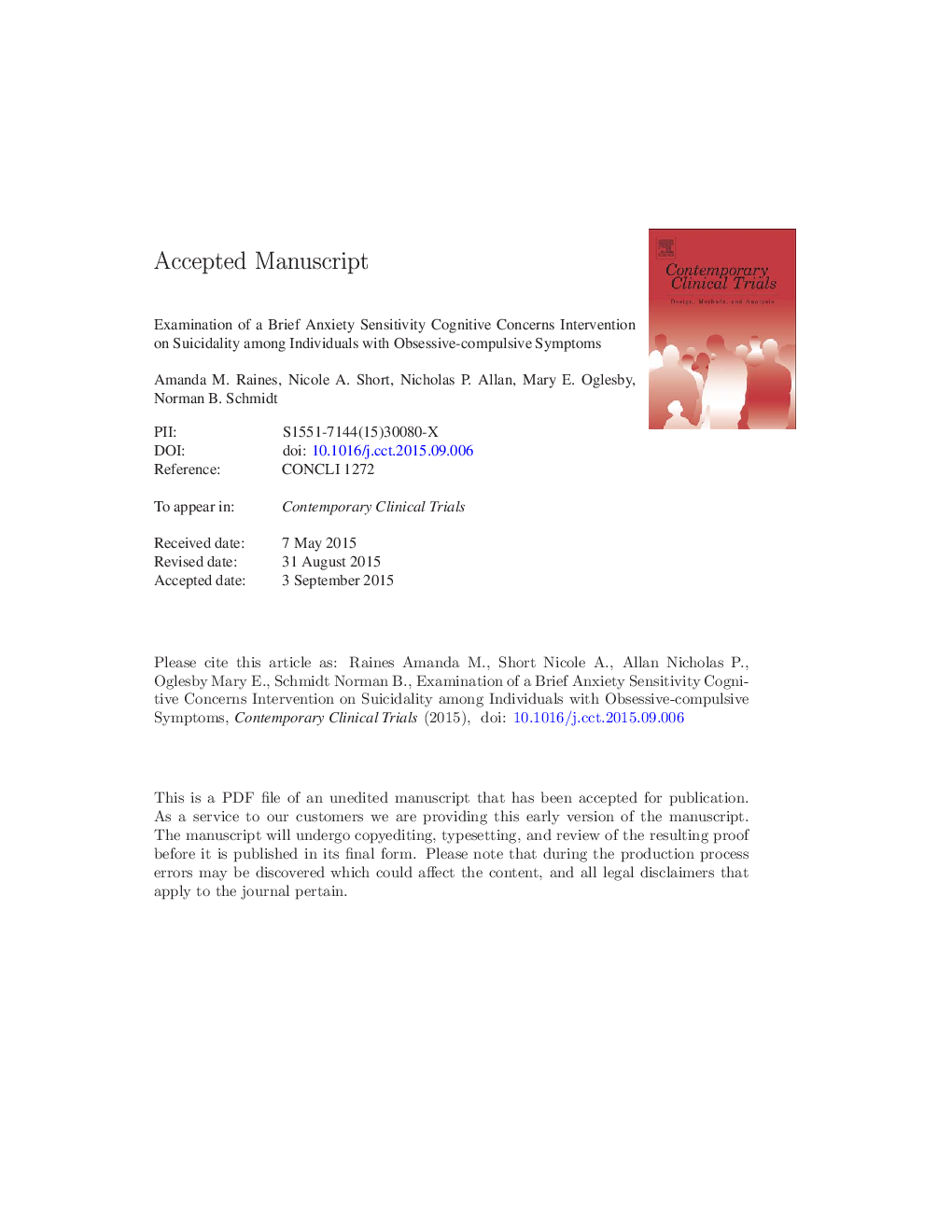| Article ID | Journal | Published Year | Pages | File Type |
|---|---|---|---|---|
| 6150489 | Contemporary Clinical Trials | 2015 | 22 Pages |
Abstract
A growing body of research has demonstrated elevated rates of suicidality among individuals with obsessive-compulsive disorder (OCD). Recently, it has been proposed that the cognitive concerns component of anxiety sensitivity (AS) may be one factor contributing to this association. AS cognitive concerns, which reflect fears of mental incapacitation, has been found to be associated with OCD and increased suicidality in a number of populations. However, questions remain as to whether reductions in AS cognitive concerns will lead to subsequent reductions in suicidality among individuals with OCD symptoms. In the current study, the sample (NÂ =Â 54) was comprised of individuals with elevated OCD symptoms recruited from the community who were participating in a larger randomized clinical trial. Individuals were randomly assigned to a one-session AS cognitive concerns intervention or a health information control intervention and assessed at post-treatment and one-month follow-up. Results indicated that the active intervention produced significantly greater reductions in AS cognitive concerns immediately post-intervention. Moreover, changes in AS cognitive concerns following the intervention mediated changes in suicidality at one-month follow-up. Findings are discussed in regard to adjunct interventions for OCD.
Related Topics
Health Sciences
Medicine and Dentistry
Medicine and Dentistry (General)
Authors
Amanda M. Raines, Nicole A. Short, Nicholas P. Allan, Mary E. Oglesby, Norman B. Schmidt,
